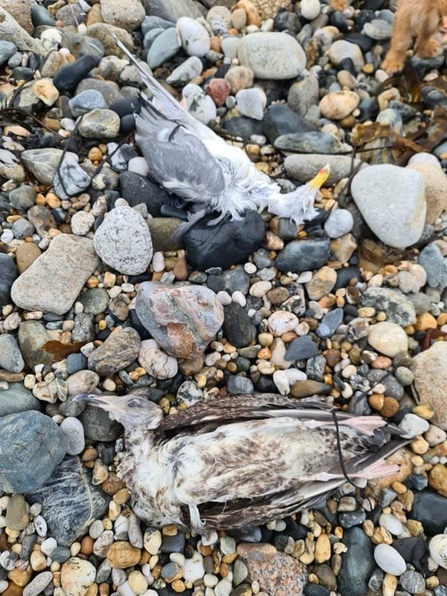On the 18th and 19th January, the Trust’s Marine Strandings Hotline was alerted to the mass stranding by several member of the public. Approximately 20 were discovered on Longrock Beach and a further 14 found on Marazion Beach.
The matter was passed over from the Trust to the Department for Environment, Food and Rural Affairs (Defra) due to the rarity of the case.
Defra’s Animal and Plant Health Agency have now confirmed that all 5 of the adult birds that were collected have tested positive for the disease. The recent news gives local marine conservationists cause for concern, according to the Trust’s marine conservation officer Abby Crosby:
“It’s very sad to hear about this case, as with all strandings of dead animals found around our coastline. Seabirds face numerous threats in our marine environment such as lack of prey, habitat loss and bycatch, so to hear that this disease is also impacting populations is terribly upsetting. Unfortunately, we may hear of more stories like this in Cornwall as bird flu continues to be a high risk around the country.

